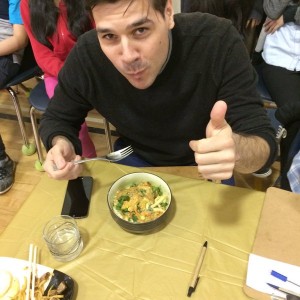A quick reflection on my inquiry synthesis.
Today, I presented a synthesis of my understanding of assigning homework at the elementary level. My inquiry has felt simultaneously long and short. As the pressures of the semester coming to a close continue to mount, the inquiry remained at the front of my mind. I have really enjoyed reading about and looking into my topic.
For my synthesis I drew from several resources. With respect to “Where I came from”, the paper which really shaped my inquiry was an article by Alfie Kohn titled Re-thinking Homework which can be found on his blog. This article cemented in my mind that homework is not as straight forward as one may think. At the very least, I began to understand that some critical thought was required with respect to it. Currently, I am interested in learning more about homework clubs as described by Lauren Slagter in Homework Club Offers Support Beyond Academics. Finding ways to bridge homework and community is part of the place-based approach to education that is evolving as my teaching philosophy. Homework clubs can create a safe, relaxing, and welcoming environment where students are free to do as much or as little homework as they like. Usually students would have access to help if needed. It is a positive working environment which many students may not have access to at home. Finally, with respect to “where I am going” I think the ultimate resource will be: myself and the classroom I am headed into. By paying close attention to my experiences in the room, I think I will be able to gain new insight about homework.
For my synthesis I chose to do an elevator pitch. It was a relatively quick presentation which explained my journey of understanding homework. I thought the pitch went well. I tried to be brief, which was harder than I had imagined, and entertaining. I find if the audience is having some level of fun they tend to absorb some of the things I am saying. If I can get my message across enough to stimulate some critical responses then I feel I have done my job.
I was trilled with the response from the class. Other TCs seemed to take interest in what I had to say and challenged me with some interesting and thoughtful questions. Along side this post I have attached the notes which I used for my elevator pitch.
As I go forward with my practicum I am hoping to integrate my inquiry into my practice. By assigning homework through the lens of understanding community rather than “traditional worksheets” students are more likely to make meaningful connections to the content they are learning.
